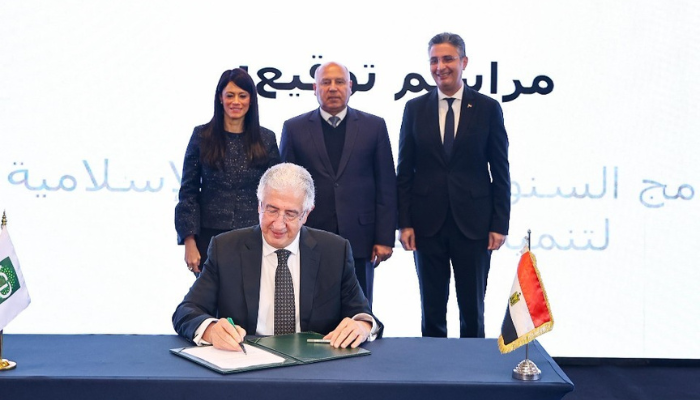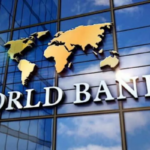The Islamic Corporation for the Development of the Private Sector (ICD), the private sector arm of the Islamic Development Bank Group (IsDB), has signed the Country Work Program 2025 for Egypt. The agreement was signed in Cairo in the presence of key government officials and marks a milestone in ICD’s collaboration with Egypt.
The signing ceremony included HE Dr. Rania Al-Mashat, Minister of Planning, Economic Development, and International Cooperation, and Governor of Egypt at the Islamic Development Bank; HE Lieutenant General Engineer Kamel Al-Wazir, Deputy Prime Minister for Industrial Development, Minister of Industry and Transport; and HE Dr. Sherif Farouk, Minister of Supply and Internal Trade.
Read also: ITFC signs $1.5 bn annual programme with Egypt to boost key sectors
Focus on 2025 country work program economic growth
The 2025 country work program aims to strengthen the private sector and drive economic growth. It includes direct financing, investments, and financial tools to support industry, infrastructure, energy, and agriculture.
ICD will also enhance financial inclusion by providing financing to Egyptian banks, particularly to support small and medium-sized enterprises (SMEs). It plans to promote Islamic finance as a development tool and facilitate access to capital markets through strategic alliances with international investors.
One of the key components of the program is ICD’s commitment to provide up to $100 million in new financing to support private sector projects in Egypt.
Government’s perspective
Engineer Kamel El-Wazir stated, “The Islamic Corporation for the Development of the Private Sector has proven, over the past years, its vital role in supporting the member countries of the Organization of Islamic Cooperation (OIC) by providing innovative financial solutions and supporting developmental projects that contribute to stimulating economic growth, creating job opportunities, and enhancing the role of the private sector, particularly small and medium-sized enterprises.”
He added, “We recognize that the private sector plays a pivotal role in the economic development process, and therefore, a large part of this cooperation will focus on empowering entrepreneurs and supporting small and medium-sized industries, which are the cornerstone of any strong economy. Through this program, efforts will be made to provide the necessary financing for these industries, as well as encourage innovation and entrepreneurship. This support will contribute to creating new job opportunities, enhancing sustainable economic growth, and improving competitiveness in regional and international markets.”
Dr. Rania Al-Mashat highlighted the successful partnership with ICD. She stated that the 2025 Country Work Program includes $100 million in financing for financial institutions to support SMEs and large private sector companies in strategic industries, particularly industry and agriculture. These sectors are critical to Egypt’s structural reform plan and economic development.
Read also: FG partners with FCMB to simplify SMEs loan access
ICD’s commitment
Eng. Hani Salem Sonbol, Acting CEO of ICD, said, “We are proud of our long-standing strategic partnership with the Arab Republic of Egypt. In 2025, we aim to deepen this relationship further by supporting the Egyptian government’s development plans. Our focus will be on enhancing the capacity of Egypt’s private sector and financial institutions, especially in supporting SMEs. Additionally, we will leverage our expertise to provide advisory services in the sukuk sector, particularly in assisting Egypt with issuing foreign currency sukuk and attracting new international investments to bolster financial flexibility.”
He added, “Our efforts will also include supporting the Arab-African Trade Bridges (AATB) Program, which aims to increase investments in member states, including Egypt.”
Since its inception, ICD has provided Egypt with $315 million in financing, supporting private sector companies, financial lines for banks, and direct investments in key sectors such as energy, food, and industry. This financing has played a role in boosting economic growth, creating jobs, and fostering private-sector development.










